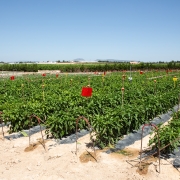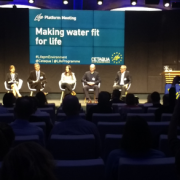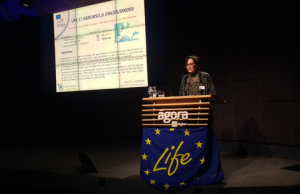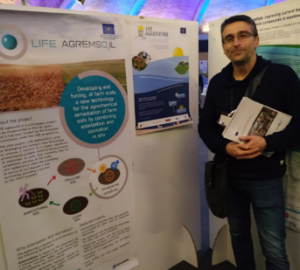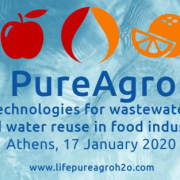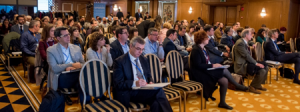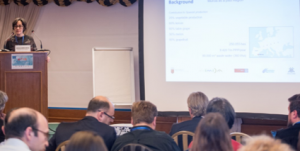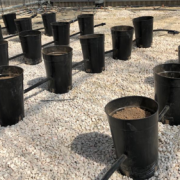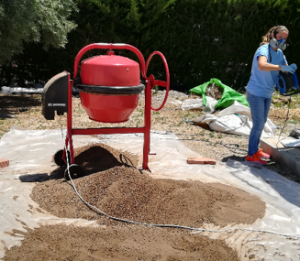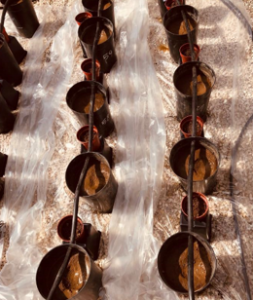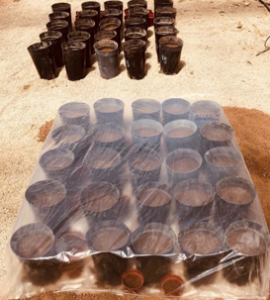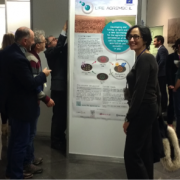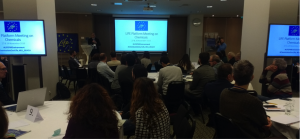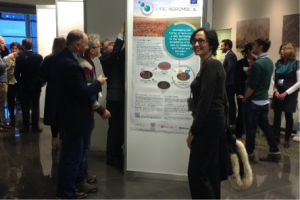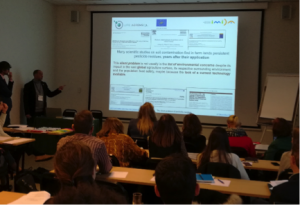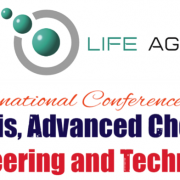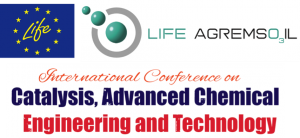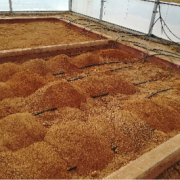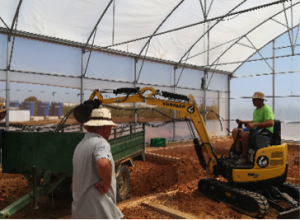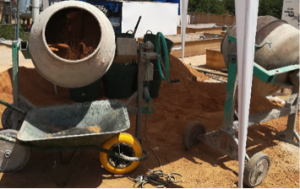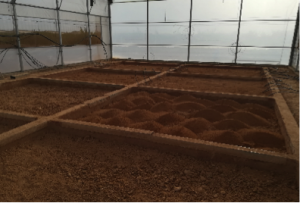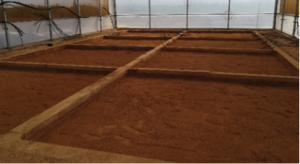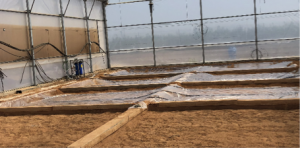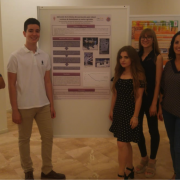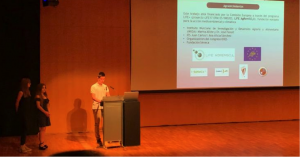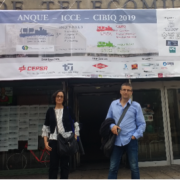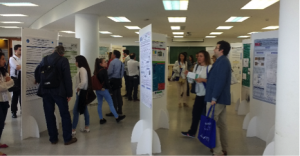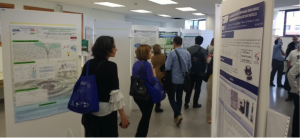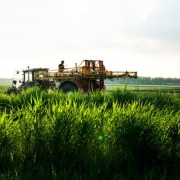By Florence Schulz | EURACTIV.de | translated by Daniel Eck
With the EU’s new Common Agricultural Policy, the European Commission is set to foster innovation and digitalisation in agriculture. German companies are hoping for multi-billion euro deals, yet management and infrastructural issues stand in the way. EURACTIV Germany reports.
“Today’s harvesters are mobile laboratories. With a GPS, it can be controlled with great precision and simultaneously collect a large amount of data on plants and soil.” Wolfram Eberhardt, head of corporate communications at Germany’s large agricultural machinery manufacturer Claas, explained.
Agriculture is experiencing a profound change. Robot-controlled milking systems or aerial drones that examine plants and possible pest infestations have long gained a foothold on the agricultural market.
High hopes lie in digitalisation. It should help Europe maintain its position in the increasingly globalised agricultural market, make the latter more sustainable and help cover the growing global need for food.
While negotiations on the new CAP continue, the Commission published a statement on a smart and sustainable digital future of the CAP, in which it calls on member states to urgently take more measures in relation to digitalisation.
Who controls the market?
For the agricultural engineering sector, this means billion-euro contracts. The sector foresees growth of up to 12%. In Germany alone, one of the leading powers on Europe’s market, 183 companies generated a turnover of more than seven billion euros in 2017 according to the auditing company EY.
The Association of German Engineers (VDI) estimated that close to one-third of this growth can be attributed to electronics, software and sensor technologies.
“The priority no longer lies in optimising machines and increasing their drive power. At Claas, we are more interested in looking for possibilities to make processes connected and intelligent,” said Eberhardt.
Machines of the future will communicate better between themselves. Processes will also be connected better, for instance with the help of a farm management software. All processes and machines, such as the milking systems, tractors, bookkeeping or the application of fertilisers, should therefore be collected. “This saves the farmer a significant amount of documentation work,” according to Eberhard.
Critics are quite sceptical about this trend. The rise of huge amounts of data could allow big companies such as Claas to build an invulnerable market position, they warn. Manufacturers of agricultural machinery could control the whole value-added chain, including the seed, pesticide and fertiliser market, if they extract data from the work of farmers on a huge scale.
This kind of criticism is not appropriate, according to Eberhard. “We only collect the data on a huge scale. As soon as the personal data of farmers is at stake, there is a need for the farmer’s explicit consent.”
Network expansion hampers progress
It cannot be said that digitalisation is being applied on every German farm. This is clear from a 2016 survey led by the digital association Bitkom. Only 12% of farmers stated that they possessed a farm management system. At the same time, more than half of the farmers use digital solutions, according to the study.
Hubertus Paetow, president of the DLG and a farmer himself in Mecklenburg-Vorpommern, is quite sceptical on the matter: “There are also automation systems, as simple as steering that are taken into account. Truly innovative and digital solutions are only being used by a small fraction of farmers.”
And there are other difficulties too: “Without the appropriate infrastructure, farmers cannot implement new technologies at a large scale even if they wanted to,” Dr Josef Efken from the Thünen-Institut told A EURACTIV-led conference a few months ago. “Ultimately, it hampers the competitiveness of our agricultural sector.”
A lack of ideas, not of money
Alongside infrastructure, structural obstacles need to be overcome. Agricultural policy is a state matter in Germany. This means that subsidy requests are submitted differently to every ministry.
“In principle, our developers need to develop a different solution for farm management in every single federal state. The standardisation of data traffic is absolutely necessary,” according to Wolfram Eberhard.
Paetow of the DLG shares that opinion. German federalism is hindering Germany from taking a leading position on the international market of agricultural technology. The administrative expense of the CAP also needs to be reduced to a “bearable level”, according to Paetow.
For this, Wolfram Eberhard could imagine a European solution in which member states would all have access to the same platform. But such a project is not envisaged in the current draft of the CAP.
On the contrary, the system is intended to be more open and give member states more freedom in the development of their national agricultural strategies. It is therefore up to them to decide how to make use of the budget for agricultural research, which has increased to €10 billion.
The German ministry of agriculture appears quite ambitious in paving the way for a digital future. In the next three years, €60 million are set to go into the so-called “testing grounds”, which should test the practical relevance of new and digital technologies in the fields.
Hubertus Paetow welcomes the initiative. Up until now, the focus has always been on basic research. “Exceptionally, for once, there is no lack of money. For this, we urgently need more intelligent minds that have good and structured ideas to apply these financial means that have been made available.”
[Edited by Zoran Radosavljevic]
Source: https://www.euractiv.com/section/agriculture-food/news/digitalising-agriculture-opportunities-and-market-control/

